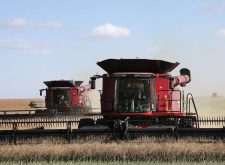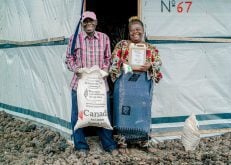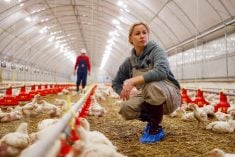HAMBURG, Oct 2 (Reuters) – Rapeseed crops in Germany are suffering unusually high levels of insect damage this autumn following the European Union’s ban on a controversial insecticide previously used to protect the oilseed, German farming association DBV said on Thursday.
Some farmers may suffer lower yields in the upcoming 2015 rapeseed harvest, it said. Germany is the EU’s largest producer of rapeseed, used for cooking oil and biodiesel production.
The EU has decided to restrict the use of a class of pesticides known as neonicotinoids which have been linked to a drop in bee populations and which were widely used as rapeseed seed treatments.
Read Also

B.C. ostriches culled, CFIA confirms
Ostriches on an embattled Edgewood, B.C. farm have been culled after a prolonged legal battle, the Canadian Food Inspection Agency has confirmed.
Rapeseed planted this autumn is the first to be grown in recent years without neonicotinoids.
“The damage that was feared to rapeseed crops planted only four weeks ago has occurred in the first year of the ban on the proven crop protection chemical,” said Wolfgang Vogel, chairman of the DBV’s arable farming committee in a statement.
The overall level of damage was unclear, but insect damage to plant roots could make rapeseed more vulnerable to frost damage in winter, he said.
“In some regions large areas of rapeseed crops have been damaged and some individual fields had to be ploughed up to enable resowing with winter grains,” he said.














